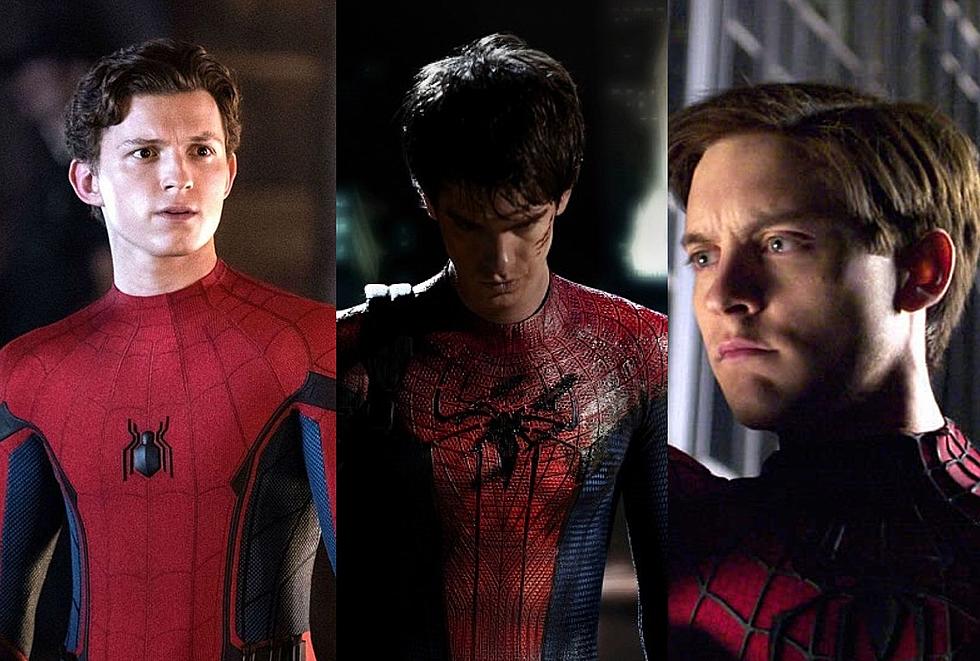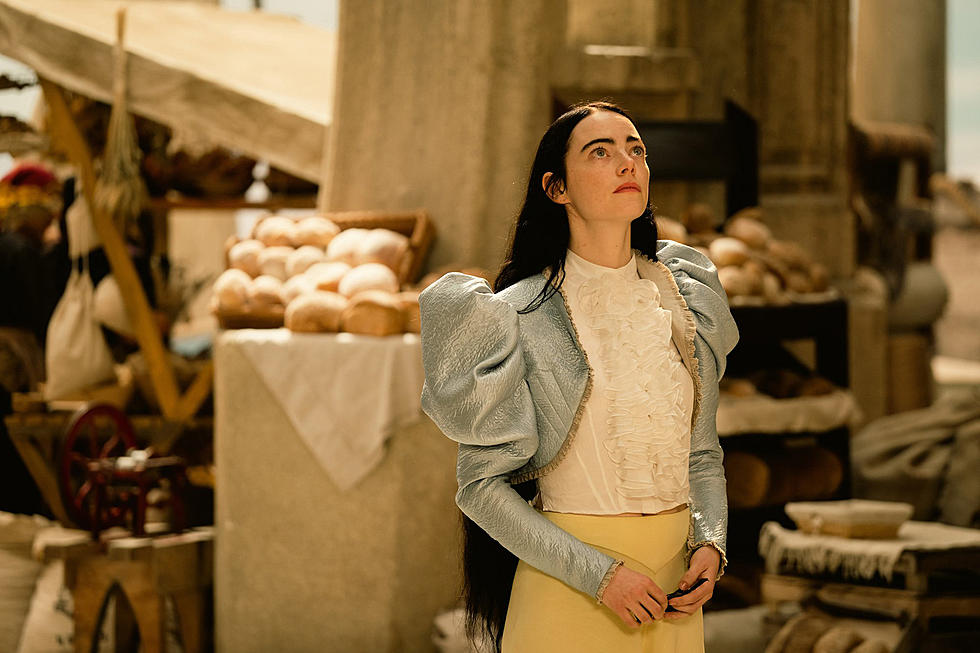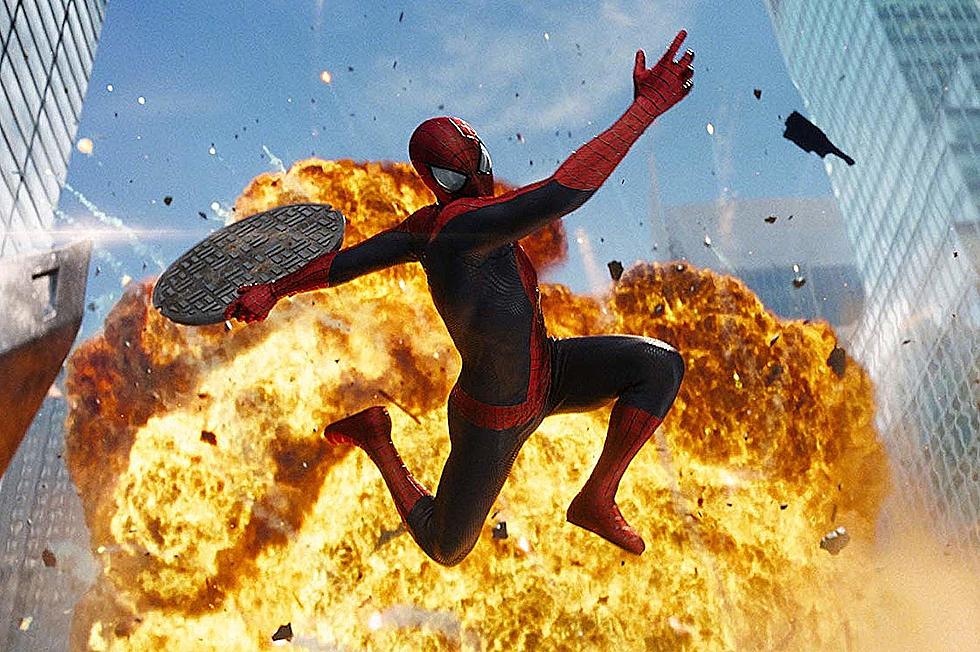![Director Marc Webb Talks About the Shocking Ending to ‘The Amazing Spider-Man 2′ [SPOILERS]](http://townsquare.media/site/442/files/2014/04/gwen-fall.jpg?w=980&q=75)
Director Marc Webb Talks About the Shocking Ending to ‘The Amazing Spider-Man 2′ [SPOILERS]
First thing, if you haven't yet seen 'The Amazing Spider-Man 2,' you should not be reading this article as it contains major spoilers for the ending of the film.
Okay, now that that business is out of the way ... director Marc Webb has been hinting for some time that the events in his film could eventually emulate what occurred in the pages of 'The Amazing Spider-Man' #121, which (last chance) depicts the death of Peter Parker's love interest, Gwen Stacy -- who is played by Emma Stone in the two most recent Spider-Man films.
Now that you've seen 'The Amazing Spider-Man 2,' we asked director Marc Webb about everything that went into the final shot of Gwen falling off the clock tower, including when it was decided to kill off Gwen (early); if there were any second thoughts; why the original scene had to be re-shot; and why 'The Amazing Spider-Man 2' ended on an upbeat note, as opposed to leaving us with a dark ending.
It feels like a lot of effort went into make this scene right.
It was a long, long process. You do a three-dimensional version of the scene -- like storyboards, but it's a computerized version of it -- and I was working on it at night before we started shooting the action components of it. And I was trying to, like, how do you keep Gwen in the mix? How do you keep pushing it forward? And there's this idea of like really extending, teasing her fall over and over again -- and creating the tension from that.
Without pissing the audience off.
Without pissing people off, yeah. So, that was tricky. But, to me, the thing that I discovered while re-working that scene over and over and over again, before we shot it, was I wanted to embody the theme of the movie, visually. To me, the theme of the movie was always about time. And you have to value the time you have with the ones you love and time will march on, no matter what. And, so, first of all I wanted to put that sequence in a clock tower to hit that thing. To push it forward, there's a stalemate between Goblin and Spider-Man. In their face-off, Goblin has his hand over his neck and his other hand is webbed against the cog. And the web is stuck between two notches on the cog below and is about to get cut. Peter senses that and throws his hand up onto the cog and tries to prevent it -- tries to literally stop time.
I remember when that kind of emerged, I was like that's it!. And then everything else backed out from that moment. The Goblin isn't the one who kills her, it's that the wheels of time march on. The wheels actually shatter because he can't stop it -- and then that thing clips the web and the web falls down.
Then, there's the fall. I haven't really talked about this a lot, but a lot of thought went into it. The fall is a reassertion of another motif, the spider-sense. Slowing moments down, where he's aware of space in a way that is hyper-sensitive. So, that slowing down allows you to experience the moment in, I think, a more profound way.
And the fact he almost saves her.
Well, it was an interesting thing that happened. He shoots the web. And I remember talking to one of the animators who is in charge of the webs, and I was describing how I wanted it to sort of move. The camera is here and it's going to pass right by us. And I was like, "It's going to unravel like this!" [Webb demonstrates by unraveling his fingers.] They watched me do that [with my hand] and they thought I meant it literally. So, they took a video of it and then they actually made it into a hand. And I hadn't thought consciously about that. But, that's what emerged. And then it connects to her -- he almost saves her, of course.
The other thing I had to adjust: he webs her and, originally, she didn't hit the ground. She just bounced and her neck was supposed to break. But, what was interesting was people, when they watched that, the web represents salvation to people. They did not understand or believe or were not willing to accept that she had died -- which is how it was done in the comics. So, we had to add a moment where there's an impact wound. And then people understood what it meant.
When did you guys decide that you were 100 percent going to kill off Gwen Stacy?
From the beginning of the first movie.
Emma Stone is so great in this role, was there ever a second thought of, "Do we really want to do this?"
Well [laughs], there was a lot of lamenting, but there was never really a question about it. Because we really built the entire movie around that event. I mean, it was in her speech -- you just could not extract it from it. And, weirdly, the ironic and terrifying and beautiful thing about it is, the next movie, we'll have to find our way without that relationship -- which is exactly the problem Peter is going to have.
And with Shailene Woodley originally playing Mary Jane, it wasn't going to end like it does in the comics, with Mary Jane visiting Peter after Gwen's death?
No. No, no, no.
You really could have had the dark ending -- you certainly would have earned it -- but it ends on a happy note.
Like 'The Empire Strikes Back'?
Or 'The Dark Knight.'
Well, the story is about healing. And you have to be so careful with the audience, especially with kids. And one of the challenges -- one of the things I was thinking about with that death and that moment in the comics -- I really tried to contextualize it and thinking Why did it have so much impact on me? Why do I keep on thinking about it? How do I give that moment meaning and not just make it an event to shock people? And it comes down to really the importance of this story -- and storytelling in general -- it is a way to heal. You want to give meaning to loss. And that was our objective -- to find meaning in that. And it's not so much about resurrection as it is about transformation. We all have to deal with that kind of stuff in all of our lives -- and to address that in a realistic way, without giving into despair, is what Spider-Man is all about to begin with.
Mike Ryan is the senior editor of ScreenCrush. You can contact him directly on Twitter.
More From ScreenCrush









